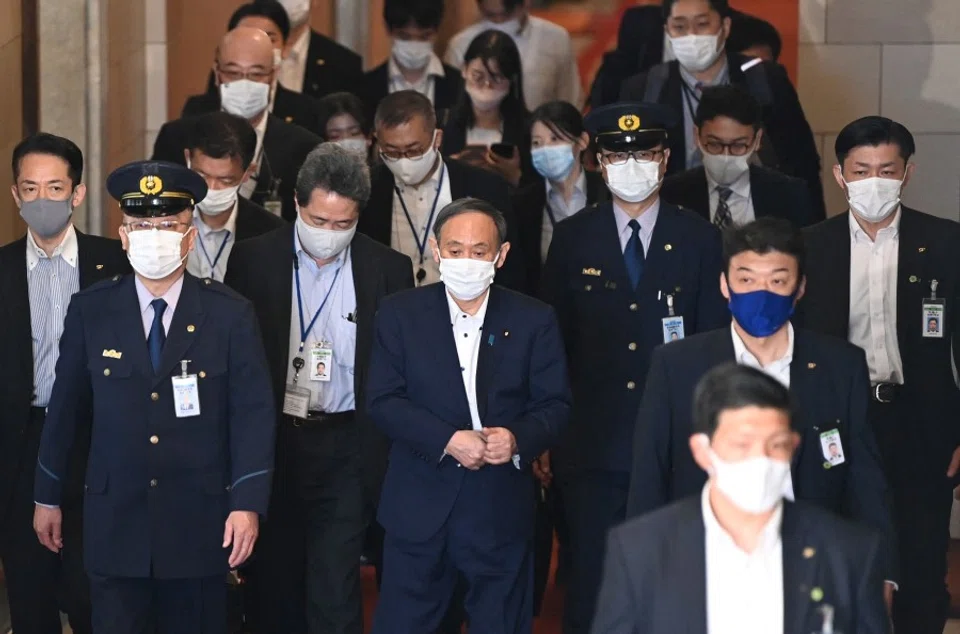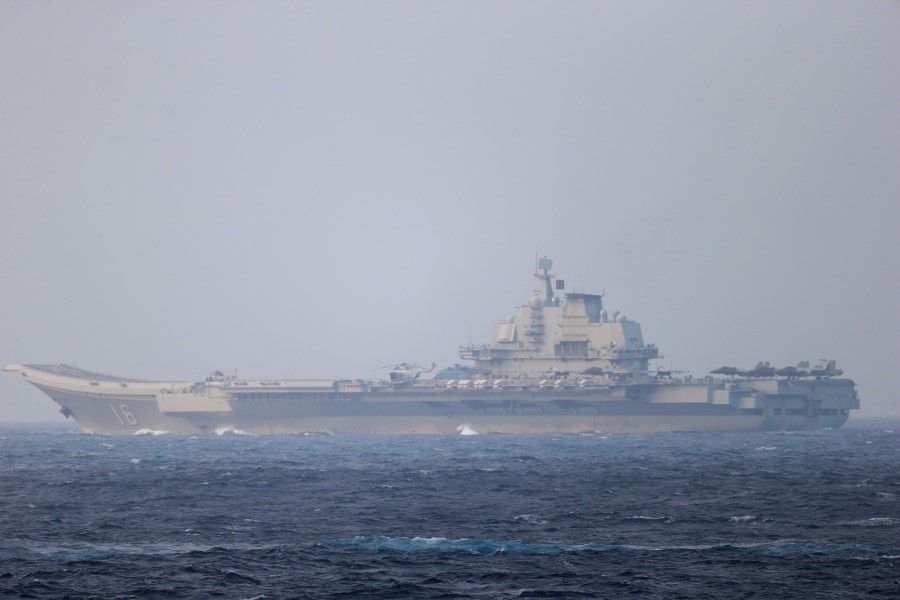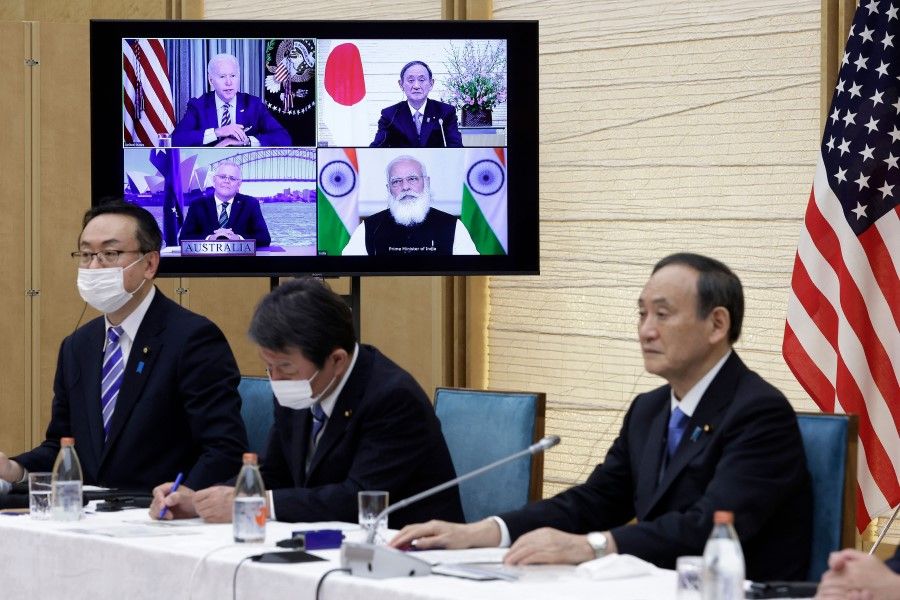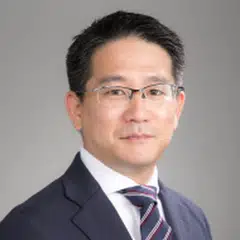Japanese academic: Has Japan 'crossed the Rubicon' in Japan-China relations?

Fuelled by its economic growth, China's rising national strength has changed the balance of power in the Indo-Pacific region and had a considerable impact on regional international order. China is a major driving force behind shifting the seat of international politics from Europe to East Asia. That effort has generated a flux in the international order in the region, creating uncertainty and instability. In the US-Japan Joint Leaders' Statement released on 16 April, both nations affirmed their commitment to work together to maintain the stability of international order. The statement recognised the actions of China in regions it asserts to be its "core interests", such as Taiwan, to be inconsistent with the rules-based order created by liberal democratic states. Japan clearly stated its perception of and position toward China, and issued a united message with the US.
Following the release of the statement, some debate within Japan suggested that it may have "crossed the Rubicon" in its policy toward China, because it clearly stated that "We underscore the importance of peace and stability across the Taiwan Strait and encourage the peaceful resolution of cross-strait issues". This sentence appeared further down in the statement than the description that "We also recognize the importance of deterrence to maintain peace and stability in the region". The logical structure suggested that peace and stability of the Taiwan Strait is maintained by the deterrence that Japan and the US provide.
Unsurprisingly, China criticised the US-Japan Joint Leaders' Statement as interference in its domestic affairs and said it would take "all necessary measures". Some in Japan believed that China would inevitably take retaliatory steps in response to the statement.

While the rhetoric of China's criticism was intense, it was not backed by action. The remarks were issued by the Chinese embassy in Japan, the Chinese embassy in the US and China's foreign ministry spokesperson, but there has yet to be any reaction from Foreign Minister Wang Yi nor Yang Jiechi (China's top diplomat), a member of the Politburo of the Communist Party of China.
Traditionally, China has pursued relations with Japan on the premise that relations with the two countries are good and their leaders should meet with one another. This statement may trigger a shift to the idea that there are problems between the two countries and so their leaders should meet.
Speaking at the China Institute of International Studies (CIIS) in December 2020, Chinese State Councilor and Foreign Minister Wang Yi put Japan at the top of the list (followed by India and South Korea) when commenting on China's diplomacy with neighbouring countries. Even after the release of the statement, China is holding firm to its policy of emphasising relations with Japan. While "showing the flag" is a key principle of foreign policy, Wang Yi also appears to be opting for pragmatic action.
Responding to 'major country diplomacy'
When Chinese President Xi Jinping explained China's brand of "major country diplomacy", he made a point of noting that China will remain on a path of peaceful development, yet it will "never give up" legitimate rights or sacrifice core interests. On the other hand, he is fully aware that the US-Japan alliance is the cornerstone of Japanese diplomacy. That is why from China's viewpoint, the content of the US-Japan Joint Leaders' Statement likely fell within expectations. China's greatest interest lies in what specific actions Japan will choose to take. For example, China must be analysing whether Japan would recognise a conflict in the Taiwan Strait as a "situation that would have an important influence on Japan's peace and security" and provide support to US armed forces, and how it would act in that case.
What action China will choose will be determined in the future, and a key stage in Japan-China relations is yet to come. That is why a dialogue between China and Japan at the head-of-state level is so important. Traditionally, China has pursued relations with Japan on the premise that relations with the two countries are good and their leaders should meet with one another. This statement may trigger a shift to the idea that there are problems between the two countries and so their leaders should meet. More than ever, Japan needs to play a game of catch with China, carefully analysing any messages it issues that contain pressure, and clearly conveying Japan's intentions in return.

Foreign Minister Wang Yi defines a "major country" as "one with the power to exert decisive influence on matters of world peace". China is now endeavouring to establish its position in the international community as one such "major country". Chinese academics have argued that the power to support a "major country" requires not only economic and military strength, but also institutional power. The term "institutional discourse power" appears in official Chinese documents. That power is China's state capacity to lay out a grand regional strategy that will shape the international economic order in a way that is favourable to China's economic development.
The Free and Open Indo-Pacific initiative which Prime Minister Suga inherited from former Prime Minister Abe is seen by China as creating a security environment that is counter to its own interests. While past initiatives have been bilateral, such as the US-Japan alliance and US-Korea alliance, with the Quad formed between Japan, the US, Australia and India, one-dimensional lines are now a two-dimensional area.
China has no de facto allies. It maintains an awareness of the international situation driven by a strong sense of caution as to how it will defend itself on its own. The rapid increase in the number of meetings between former Prime Minister Abe and President Xi since 2017 can be attributed to China seeing Abe as a leader charting a major strategy dealing with both the economy and trade in addition to security, and thus thought dialogue was necessary.
While this latest Japan-US Summit Meeting may give China reason to think the same, ultimately the question is how Japan will cast its grand strategy. For Japan, that is the Rubicon.
Related: Balancing China: Can Japan continue to be a reliable power in SEA after Abe? | Targeting China, Japan's Indo-Pacific strategy in Southeast Asia runs into headwinds? | China's 'new era' for China-Japan relations does not match Japan's needs | How Japan will deal with China-US conflict and the Taiwan issue under the new Suga administration
